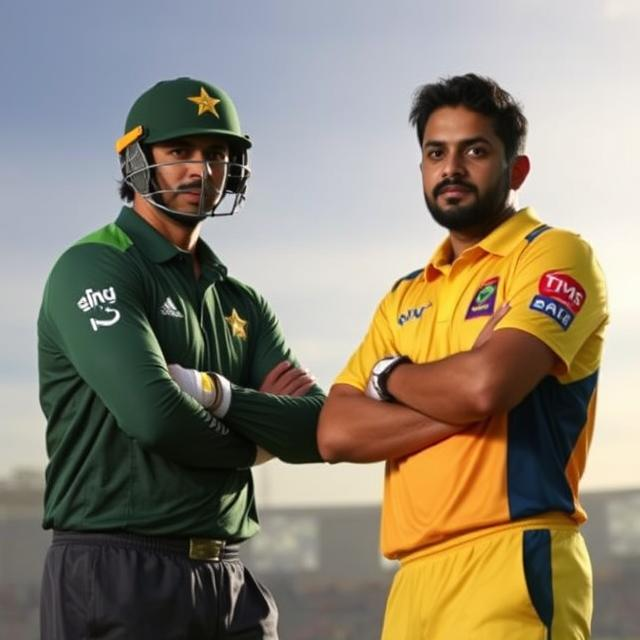Pakistan Cricket Team Roster: Asia Cup 2018 – A Deep Dive

Pakistan Cricket Team Roster: Asia Cup 2018 – A Deep Dive
The 2018 Asia Cup, a crucial tournament in the cricketing calendar, saw Pakistan striving for victory. This article delves into the complete roster of the Pakistani squad for the 2018 Asia Cup, examining the players, their roles, and their individual performances during the event.
Were they the favorites? What challenges did they face? How did their squad dynamics impact their results? Let’s unravel the story behind the team’s performance in this crucial tournament.
The Road to Asia Cup 2018: Context is Key
Understanding Pakistan’s performance at the 2018 Asia Cup necessitates a brief look at the cricketing landscape of that era. Pakistan, a powerhouse of cricket, faced both exhilarating victories and disappointing defeats in recent times. The team’s composition reflected both experienced veterans and promising newcomers, each bringing their unique strengths to the table. The overall atmosphere and the prevailing expectations around the team were also crucial factors.
Pakistan’s Asia Cup 2018 Roster: A Detailed Look
The Pakistan Cricket Board (PCB) selected a squad meticulously crafted to face the challenges of the tournament. The squad list meticulously balanced both the familiarity of seasoned players with the potential of emerging talents.
Key Players: The roster featured renowned names who had cemented their positions in international cricket. Understanding their individual strengths was essential to how the team approached the Asia Cup.
Fakhar Zaman
An opening batsman, he brought a crucial ability to set the tone for the innings. His performance in the tournament contributed significantly to Pakistan’s success.
Babar Azam
A pivotal middle-order batsman, Babar’s consistency was vital for Pakistan’s quest for victory. His calculated approach to the game, and contributions to both the chase and the build-up, significantly shaped the team’s strategy.
Imam-ul-Haq
A crucial addition to the opening batting lineup, Imam’s contributions helped lay a strong foundation for Pakistan’s innings. His adaptability was essential to their strategy.
Sarfaraz Ahmed
The captain of the team, Sarfaraz’s leadership played a decisive role during the Asia Cup. His calculated approach was vital in tactical decisions. His performance throughout the matches played a critical role in their success.
Supporting Players: Beyond the stars, a host of supporting players provided vital contributions to the team. Players like Shoaib Malik, Hasan Ali, and Mohammad Amir were pivotal in their various roles, whether it be their batting, bowling, or fielding.
Emerging Talents: The 2018 roster also included emerging talents who showcased potential for the future. Identifying and nurturing these emerging talents was crucial to the overall success of the Pakistani cricket program.
Analysis of the Roster and Performance
The 2018 roster was meticulously crafted, combining experience and emerging talent. Analyzing each player’s performance in the tournament is crucial to understanding the team’s overall success. Factors such as their individual scores, wickets taken, and crucial moments in the game give insight into their specific contributions.
For instance, the batting performances of Zaman, Babar, and Imam helped Pakistan achieve specific targets. Similarly, Ali’s crucial breakthroughs played an important role in Pakistan’s victories in some matches.
Looking back, the team’s experience and strategic approach are important elements to consider. An in-depth analysis shows the players’ strategic role in achieving victories. Also, identifying the strengths and weaknesses within the roster provides valuable insights for improving performance in future tournaments.
Lessons Learned from the Asia Cup 2018
Pakistan’s performance in the 2018 Asia Cup offered valuable lessons for the future. The team’s strategic approaches, player interactions, and overall performance demonstrated a significant development in cricket.
The tournament served as a platform to highlight both the strengths and areas for improvement within the team. The selection process and squad makeup were meticulously crafted to optimize the team’s capabilities, showcasing the careful planning involved in such tournaments.
Moreover, the insights gathered during the 2018 Asia Cup had a significant impact on future strategies. This deep analysis played a pivotal role in shaping Pakistan’s future cricketing approach. Ultimately, the 2018 Asia Cup provided invaluable experience for Pakistan’s continued rise in the cricketing world.
Beyond the Roster: Factors Impacting Performance
Beyond the roster, many other factors significantly impacted Pakistan’s performance during the 2018 Asia Cup. This included team dynamics, the opposition, and the overall environment of the tournament.
The interplay among the players, their interactions, and their leadership roles significantly shaped how the team approached each match. Furthermore, the quality of the opposing teams presented different challenges, demanding adaptation and strategic adjustments from the Pakistan team.
The tournament’s atmosphere, the pressure of the competition, and the prevailing conditions also contributed to the outcome. All of these factors need to be taken into consideration for a well-rounded understanding of the event.
Conclusion: A Comprehensive Look
Pakistan’s 2018 Asia Cup campaign was a significant event in their cricketing history. By delving into the roster, performances, and contextual factors, we gain a deeper understanding of this crucial tournament and its importance in shaping Pakistan’s trajectory.
The thorough examination of the roster and performance analyses sheds light on the strategies, strengths, and areas for improvement within the team. Understanding these factors is paramount to success in international cricket tournaments.
This article has attempted to comprehensively cover the Pakistan Cricket Team roster for the 2018 Asia Cup, providing insights into the players, their contributions, and the surrounding factors that influenced the tournament’s outcome.